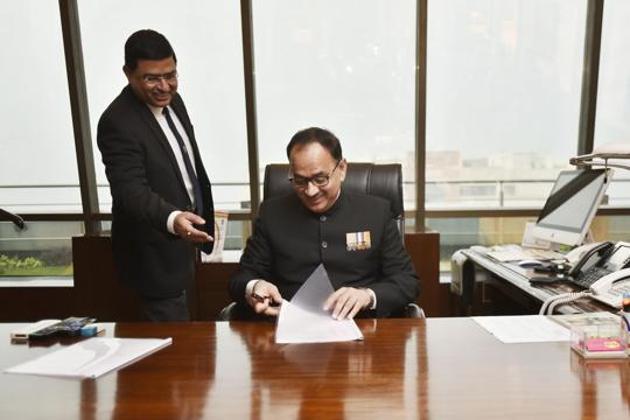The moot question: Who will guard the guardians?
Its clear that India’s guardians, its institutions, are failing to hold power to account. They are failing because the government is trespassing on the autonomy of the unelected institutions
There is a Latin quip, a short clever remark, which comes to my mind in the midst of all this turmoil over the relationship between the government and India’s other institutions — quis custodiet ipsos custodes — who will guard the guardians themselves? It is often quoted by philosophers discussing Socrates’ search for guardians who can hold power to account and prevent its misuse. The fundamental question being asked in India today is where does the power to prevent misuse lie? Bound up with that question are the disputes over the powers of the elected government and the powers of what are being called unelected institutions, particularly the judiciary and the civil service, the police, and currently also the Reserve Bank. Does the government have power over those institutions if it thinks they are misusing their powers?

Last weekend, an NDA minister came up with a surprising answer. During a public lecture, he said “the nation that is India is higher than any institution or government”, implying that the nation should hold power to account. But the nation has no legal identity, and is not an institution. When the people of India gave themselves a Constitution in November 1949 they declared “Bharat shall be a union of states”.
There is another difficulty with the concept of the nation’s superiority over all other institutions. The nation speaks with many voices — if it didn’t where would politics be? So we come back to the problem of who should guard against the misuse of power? It was, as I said, the people who gave India its Constitution, so surely it could be argued that those elected by the people of India, should be the final arbiter in disputes over the use and the misuse of power, that parliament, state assemblies, and all other elected institutions should be superior to what politicians call unelected institutions. There is a common belief among the people that this should be so. Time and again, while covering elections, voters have said to me, “at least politicians have to come and ask us for our votes, officials sit in their offices without having any need to pay attention to us.” There is a common belief among elected representatives that they are superior and this gives them the right to interfere in unelected institutions .
Under the Indian Constitution, the misuse of power should be prevented by checks and balances provided by institutions elected and unelected. There should be a balance of power between the institutions. There will only be balance if each institution enjoys a degree of autonomy. Harilal Kania, the first Chief Justice to be sworn in after the Constitution was enacted, said the court will “be quite untouchable by the legislature or the executive in the performance of its duty.”
It is often thought that governments and politicians are entirely to blame for the failures of the checks and balances because of their trespassing on non-elected institutions’ autonomy. The current banking crisis is being blamed on politicians telephoning bankers and instructing them to lend without adequate security. But the blame must also fall on those bankers who allowed the autonomy they enjoyed to be trampled on. The CBI crisis has been caused by allegations that some officers within the organisation have misused their autonomy, sadly not an uncommon happening.
It’s clear that India’s guardians, its institutions, are failing to hold power to account. They are failing because the government is trespassing on the autonomy of the unelected institutions. This process first gathered pace when Indira Gandhi sought out committed judges and committed officials. But the institutions are also failing because the unelected institutions are allowing this trespassing. At the same time, the officials of unelected institutions are misusing their autonomy. The institutions are now such ineffective guardians of India that a highly respected member of the unelected Indian Administrative Service, has warned in his collection of essays called Safeguarding India that India could face “chaos, turbulence, and serious unrest ... unless public administration systems become more efficient, productive, honest, and accountable.”
The views expressed are personal






